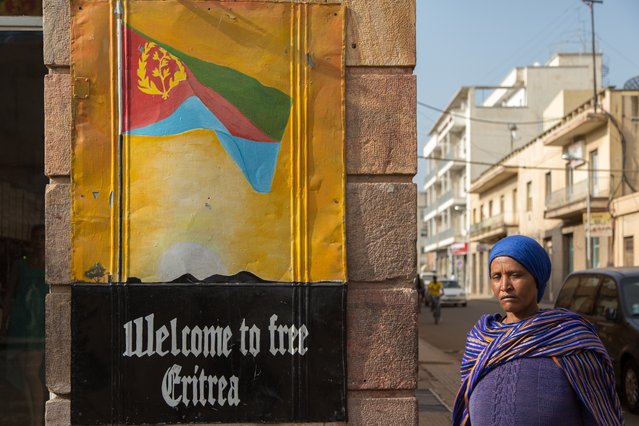
For her series “Dolce Vita in Hell”, Swiss photojournalist Stéphanie Buret headed to Eritrea and found a country struggling to haul itself out of oppression – but with its art deco buildings still looking stunning. (Photo by Stéphanie Buret/The Guardian)
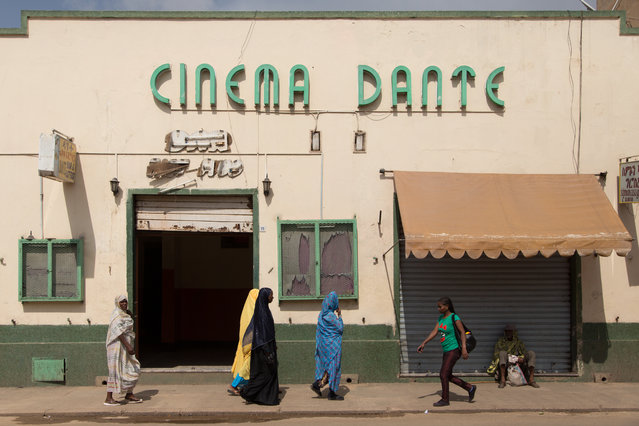
Italy conquered Eritrea in 1889 and claimed it as a colony, a rule that lasted until it was taken over by the British in 1941. Various art deco cinemas from the 1930s still remain in the capital, Asmara. (Photo by Stéphanie Buret/The Guardian)
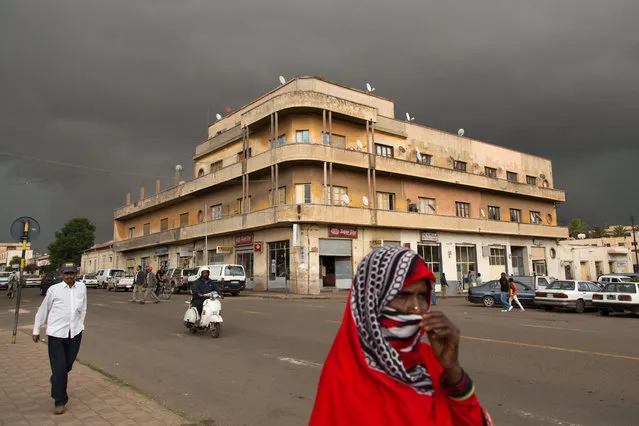
More colonial architecture in Asmara. The Italians also helped install coffee culture in the country – coffee is often served in three rounds, known as awel, kalaay and bereka. (Photo by Stéphanie Buret/The Guardian)
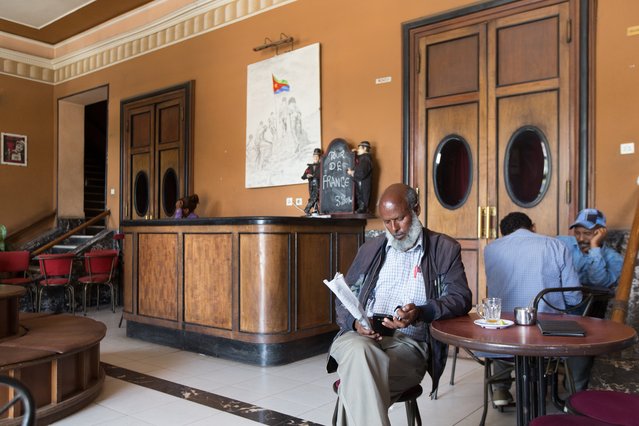
“In the old Roma cinema in Asmara, men drink macchiato and read the only national newspaper”, explains Buret of this shot. “Freedom of the press doesn’t exist”. (Photo by Stéphanie Buret/The Guardian)
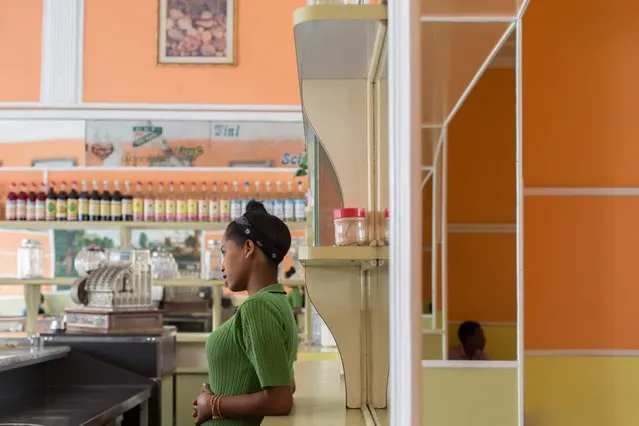
“Saba, the waitress, waits for the electricity to come back“, Buret says. “In Asmara, the capital city, there is a power cut every day for several hours – but macchiato culture is still common”. (Photo by Stéphanie Buret/The Guardian)
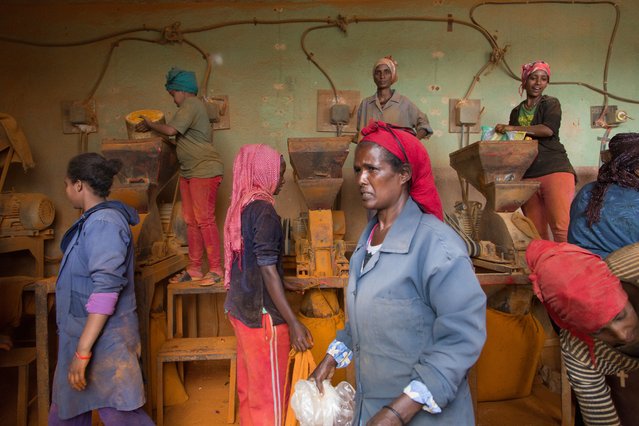
“In the red chilli powder factory of Asmara, women work in bad sanitary conditions”, she says. “They have lung problems, but jobs are difficult to find as the economy is at zero”. (Photo by Stéphanie Buret/The Guardian)
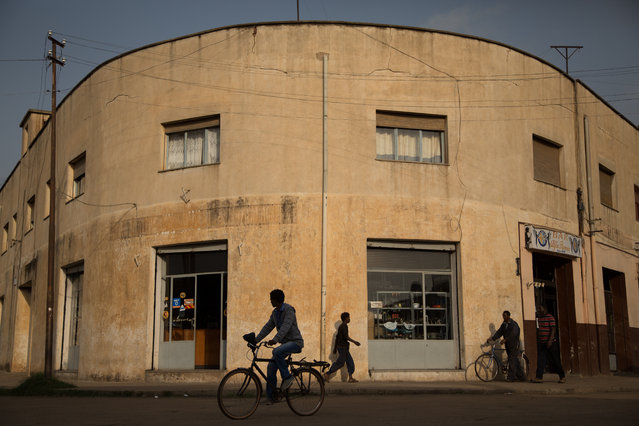
A man cycles through Amsara. Cycling is one of the country’s most beloved pastimes – two Eritreans, Daniel Teklehaimanot and Merhawi Kudus, took part in the Tour de France in 2015. (Photo by Stéphanie Buret/The Guardian)
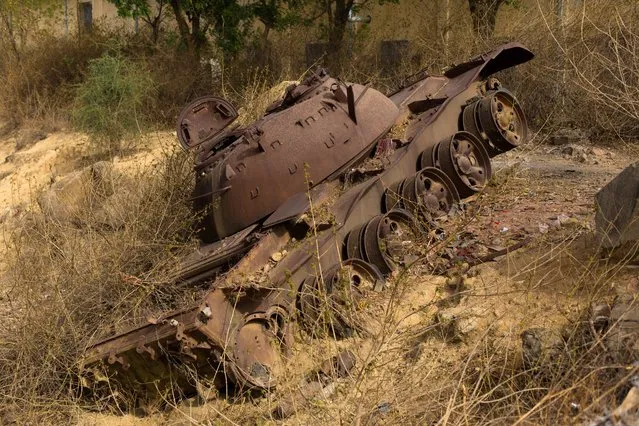
“Throughout the country, there are many enemy Ethiopian tanks, the result of war that ended in 1993”, Buret says. “But nothing has changed since then. The tanks were not removed, the architecture was not renovated and the economy has not been developed. The country is frozen and seems like a big jail”. (Photo by Stéphanie Buret/The Guardian)
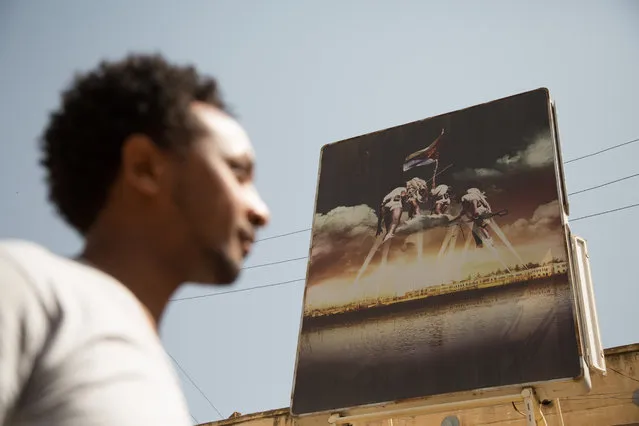
National military service is mandatory, and with an indefinite period of conscription, can last for many years. (Photo by Stéphanie Buret/The Guardian)
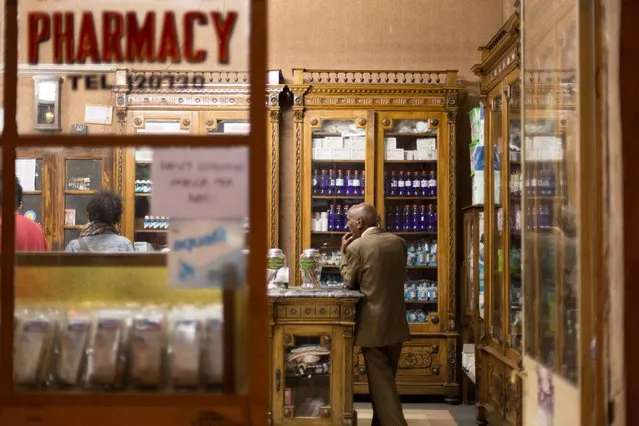
A 2015 UN report found “systemic, widespread and gross human-rights violations” in the country, which is a one-party dictatorship. (Photo by Stéphanie Buret/The Guardian)
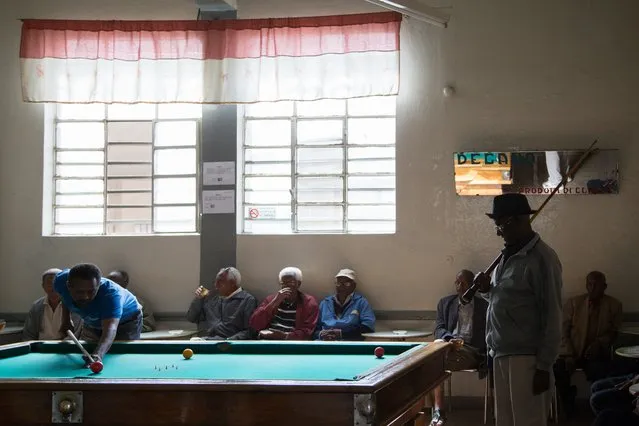
Given the lack of prospects and oppressive atmosphere, some 5,000 Eritreans flee the country each month. (Photo by Stéphanie Buret/The Guardian)
04 Aug 2016 10:35:00,
post received
0 comments
